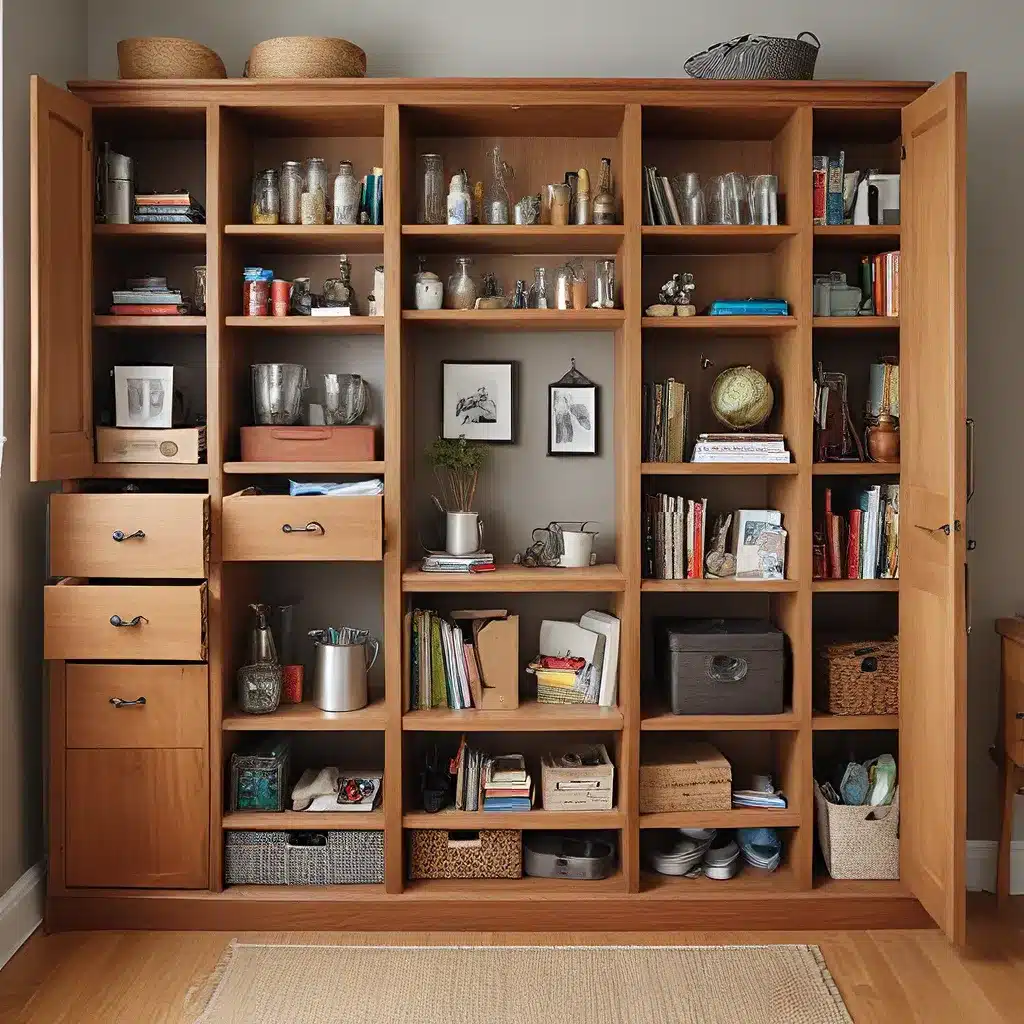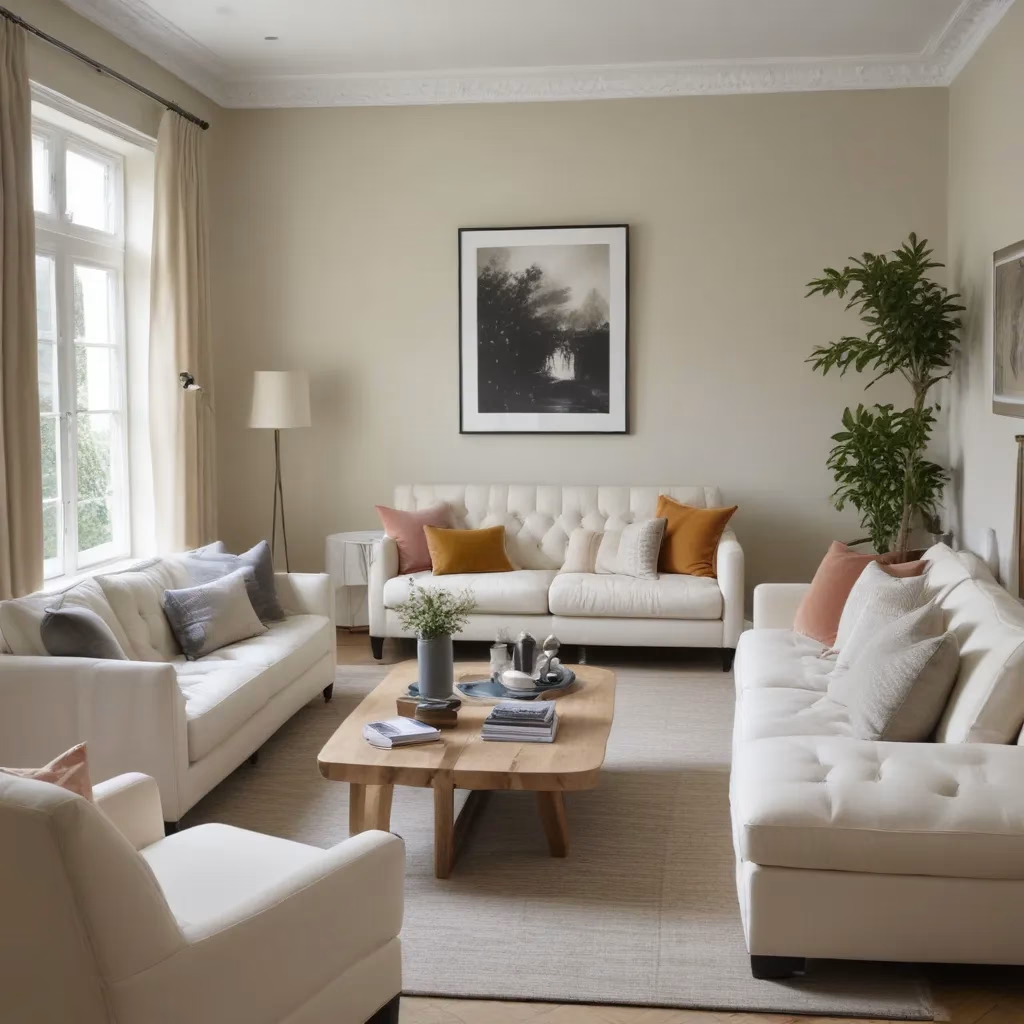
As someone who’s struggled with both anxiety and depression, I can tell you firsthand that the state of your physical environment has a profound impact on your mental wellbeing. In fact, studies have shown that clutter and disorganization in the home are directly linked to higher rates of emotional distress. It’s a vicious cycle – anxiety or depression can lead to a cluttered home, and a cluttered home can then exacerbate those feelings of anxiety and depression.
Oof, I’ve been there, my friends. When my home is a mess, I feel like my mind is a mess too. The piles of stuff everywhere just seem to suck the energy right out of me, making it even harder to get motivated to tackle the chaos. And let’s be real – it’s not just me. Research has found that women in particular are more affected by clutter and disorder in the home environment. But whether you’ve got XX or XY chromosomes, if you’re drowning in clutter, it’s likely taking a serious toll on your mental health.
But here’s the good news – getting organized and embracing minimalism can actually be a powerful tool for managing anxiety and depression. When you clear the physical clutter from your space, it has this amazing way of clearing the mental clutter too. Suddenly, you feel lighter, more focused, and better able to think clearly. It’s like a weight has been lifted, both figuratively and literally.
The Correlation Between Clutter, Anxiety, and Depression
So what is it about clutter that makes us feel so anxious and depressed? Well, the research points to a few key factors:
-
Visual Overstimulation: An average room contains over 2,000 visible objects – things like decor, trinkets, papers, electronics, and more. This constant visual input can lead to a feeling of being overwhelmed and overstimulated, triggering anxiety.
-
Difficulty Focusing: All those distracting items make it hard to concentrate and be productive. When you’re constantly surrounded by piles of stuff, it’s challenging to stay on task and get things done. This can contribute to feelings of frustration and inadequacy.
-
Emotional Attachment: We often hang onto items due to sentimental value or a sense of guilt over money spent. But these emotional attachments can actually be detrimental, weighing us down and preventing us from moving forward.
-
Perceived Lack of Control: Living in a cluttered, disorganized environment can make us feel like we’ve lost control over our own space and lives. This perceived lack of control is a major driver of anxiety and depression.
The end result is a downward spiral – the more cluttered and chaotic our homes become, the more stressed and depressed we feel. And the more stressed and depressed we feel, the harder it is to stay on top of the clutter. It’s a vicious cycle that can be really tough to break.
Decluttering as a Path to Mental Wellness
But here’s the good news – getting organized and embracing minimalism can actually be a powerful tool for managing anxiety and depression. When you clear the physical clutter from your space, it has this amazing way of clearing the mental clutter too. Suddenly, you feel lighter, more focused, and better able to think clearly. It’s like a weight has been lifted, both figuratively and literally.
I know firsthand how transformative the decluttering process can be. When I first discovered the joys of minimalism several years ago, I was struggling with some pretty intense anxiety and depression. My home was a mess, and it felt like there was just stuff everywhere I looked. I’d get overwhelmed just thinking about tackling it all.
But once I started intentionally paring down my possessions, something magical happened. With each bag of donations I’d take to Goodwill, I could feel the tension in my body start to melt away. The more I cleared out, the more calm and centered I felt. It was like I was finally able to breathe again.
And the benefits didn’t stop there. As I continued on my decluttering journey, I noticed that my focus and productivity also started to improve. Without all the visual distractions, I found it easier to concentrate on the task at hand. My mind felt clearer, and I was able to get so much more done.
Perhaps most importantly, though, the act of letting go of physical stuff helped me work through a lot of the emotional baggage I was carrying. Those sentimental knickknacks and impulse purchases I’d been hoarding? Turns out they were weighing me down in more ways than one. Releasing them was incredibly freeing.
Strategies for Conquering Clutter and Reclaiming Your Mental Health
So if you’re ready to experience the mental health benefits of minimalism for yourself, where do you even start? Well, I’ve got a few tried-and-true strategies that have worked wonders for me:
-
Start Small and Celebrate Your Progress: Tackling an entire room or closet all at once can be totally overwhelming. Instead, try breaking it down into small, manageable chunks. Spend just 15-30 minutes a day decluttering one drawer or shelf. It may not seem like much, but those little wins will add up quickly and provide a much-needed boost of momentum.
-
Focus on the Feeling, Not the Stuff: When you’re deciding what to keep and what to let go, don’t get caught up in the sentimental value or monetary cost of an item. Instead, tune into how it makes you feel. If it brings you joy and adds value to your life, great! But if it’s just weighing you down, time to say goodbye.
-
Establish Routines and Habits: Once you’ve cleared the clutter, it’s essential to put systems in place to maintain that order. That might mean setting aside 10 minutes each morning to tidy up, or making a habit of dealing with mail and paperwork as soon as it comes in. The key is to make organization a regular part of your lifestyle, not a one-time project.
-
Enlist Support and Accountability: Decluttering can be tough, both physically and emotionally. Reach out to friends or family members who can provide encouragement and a fresh perspective. You could even join an online community of fellow minimalists for extra motivation and advice.
-
Be Patient and Compassionate with Yourself: Letting go of stuff isn’t always easy, especially if it’s tied to deep-seated emotional issues. Give yourself grace and remind yourself that progress isn’t linear. Some days will be easier than others, and that’s okay. The important thing is that you keep moving forward, one small step at a time.
Remember, the journey to a clutter-free, anxiety-free life isn’t about perfection – it’s about progress. By incorporating these strategies into your daily life, you can start to experience the transformative power of minimalism and reclaim your mental wellbeing.
And if you ever find yourself struggling, just remember: your home shouldn’t be a source of stress – it should be a sanctuary where you can relax, recharge, and thrive. With a little bit of decluttering and a whole lot of self-compassion, you can create the calming, restorative space** you deserve.
Now, who’s ready to dive into some minimalism magic and wave goodbye to clutter-induced anxiety and depression for good? Sofa Spectacular is here to support you every step of the way!



